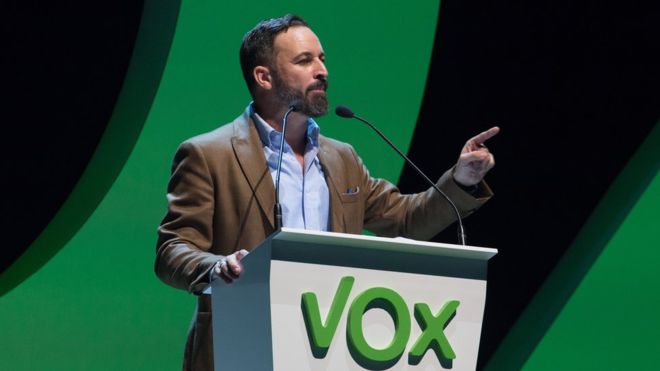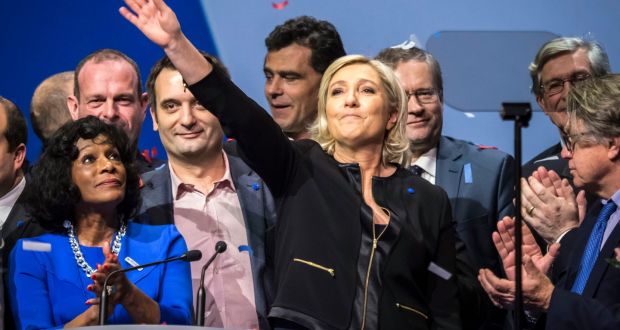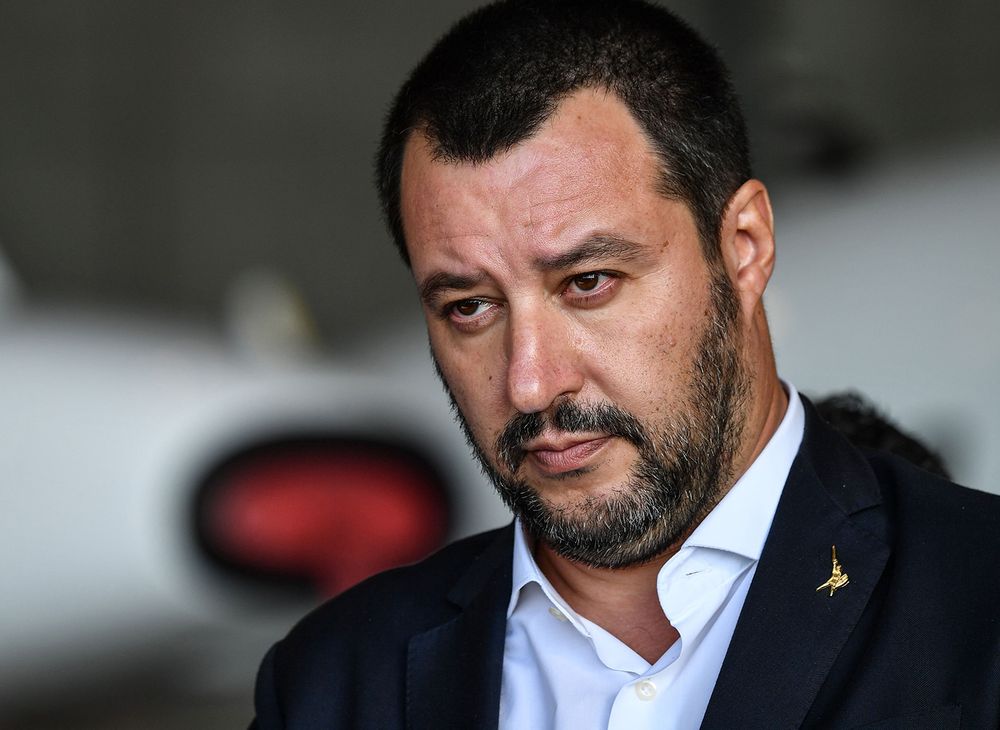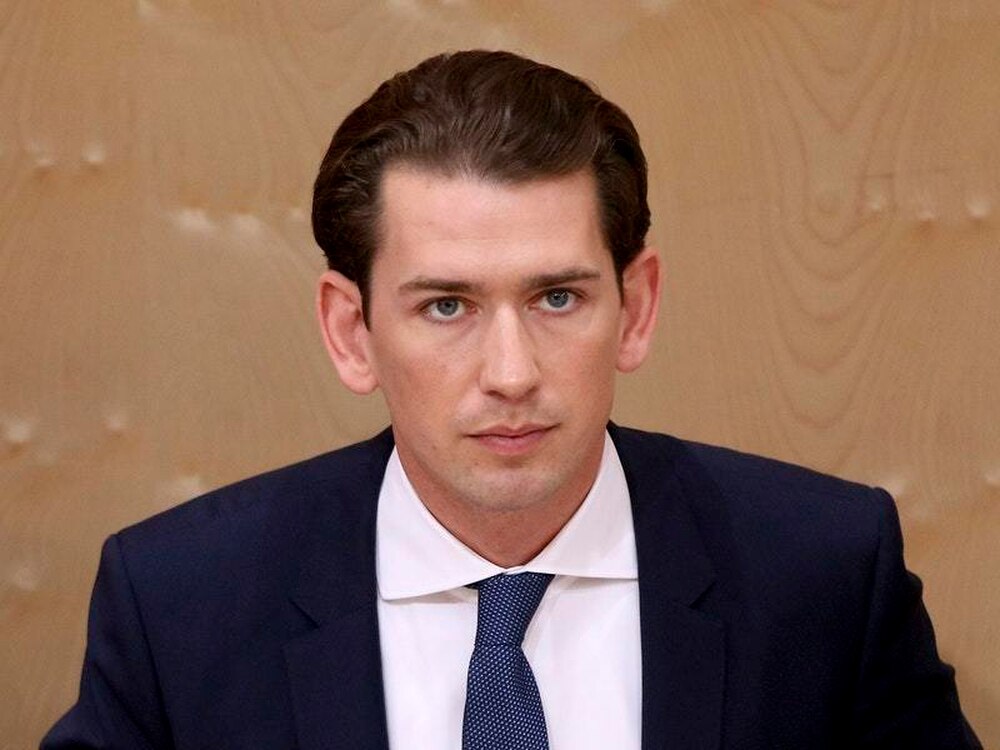RIO DE JANEIRO, BRAZIL – With a huge leap in the November 10th elections in Spain, Vox became the third-largest party in Congress by doubling its bench to 52 seats from the 24 won six months earlier. By doing so, the ultra-right Spanish party has leveled itself with like-minded associations in other European countries.
In its rapid ascent, Vox was given a helping hand by the People’s Party (PP) and the “Ciudadanos” (Citizens) party, who rely on the ultra-rightist votes to govern in Madrid, Andalusia, and Murcia. Europe is struggling between sharing power with the far-right and maintaining a cordon sanitaire in order to prevent its infiltration into government.

Barrier in Germany
So far in Germany, an iron-clad protective barrier has long been in place, although in recent months there have been tensions in the east of the country as a result of the election results of the ultra-rightists, political fragmentation, and the resulting difficulty in forming majorities in the government.
The far-right Alternative for Germany (AfD) entered parliament by winning 12.6 percent of the vote in the general elections in September 2017, and became the third-largest Bundestag bloc. The AfD is also the largest opposition party in a country where social democrats and conservatives rule in a large coalition. All other political groupings in Germany consign AfD to political ostracism.
The Christian Democratic Union (CDU), the party of Chancellor Angela Merkel, approved a motion a year ago during its congress, excluding any kind of cooperation with the ultra-right party. This text is stressed by the party leaders every time an official raises the possibility of debating the issue.
Thuringia, a federal state in the east and one of the bastions of the far-right, has recently experienced this. There, the AfD won 23 percent of the votes in October, adding to the difficulties in forming the government. Days after the elections, 17 local CDU members wrote a letter requesting to be allowed to speak to all parties, including the AfD.
From Berlin, the party leaders vehemently ruled out this possibility. The general secretary of the conservative party, Paul Ziemiak, reiterated this position last week. “The AfD sows hatred and tries to divide our country,” he said. “The decision of the party’s federal congress is compulsory for everyone,” he said.

In July, in Görlitz, also in the east, in the face of the ultra-right mayoral candidate’s popularity, the other parties decided not to nominate candidates for the post, despite their differences, in order to favor the conservative candidate.
The union of all the forces against the ultra-right led the conservative candidate to win the municipal elections, albeit only by a small margin. Furthermore, last week, the German parties reconvened and agreed to remove an AfD deputy from his position in a Bundestag committee after he had tweeted comments regarded as anti-Semitic, one of which after the attack by a neo-Nazi on a synagogue in Halle.
“Non!” to any alliance with right-wing in France
In France, despite the hesitations and shifts of recent years, the watchword remains clear: no alliances with the ultra-rightists. Not even rapprochement – sharing a table with its leaders – is to be welcomed.
This occurred in late June, when three second-rank politicians from the traditional right-wing Republican Party (LR), dined with Marion Maréchal Le Pen, the youngest of the Le Pen clan, hegemonic for four decades on the far-right. Gérard Larcher, President of the Senate and LR politician of the highest institutional level, reprimanded them: “They placed themselves at odds with the values of our political formation,” he warned.
The cordon sanitaire – also known as the republican front – describes different practices in France. It concerns the refusal to govern in alliance with the far-right. But it also concerns the commitment to join forces, whether left or right, to prevent the access of the National Reunification (RN, formerly the National Front) to power.

This second approach is explained by a particular feature of the French system: elections by majority system in two rounds. Under this system, in the second round of elections – from local to presidential -, only the two candidates with the most votes in the first round or those that exceed a certain level will remain in the dispute.
The concept is that when a candidate from RN is a finalist, supporters of other parties should vote against him. That explains why, of the nearly 36,000 French municipalities, RN governs only 14. And also why, despite being the most voted party in the first round of the 2015 regional elections and winning in six regions, it was swept away in the second: it is not governing any region.
In the 2017 presidential elections, something similar happened: in the second round, the right-wing leaders called for a vote for the centrist Emmanuel Macron against Marine Le Pen, and the first won with 66 percent of votes, compared to 34 percent for the RN leader.
But the advantage was already much smaller than that achieved by Jacques Chirac in 2002 over Jean-Marie Le Pen. And the polls anticipate an even tighter result for 2022.
Although, in general, the slogan of the cordon sanitaire persists since the end of the eighties, in the fine print the matter is different. Over the past decades, there have been occasional agreements with the Le Pen National Front at the regional and local levels.
And the leaders of the traditional right-wing, from Jacques Chirac’s Rally for the Republic (RPR) to its mutations, as Union for a Popular Movement (UMP) and now the LR, have sometimes flirted with the ideas of the far-right to seduce their voters. Meanwhile, the ultra-right has not stopped growing. For millions of voters, the taboo has vanished.
No isolation in Italy
The parties in the Italian Parliament have not subjected the parties regarded as ultra-right to any kind of cordon sanitaire. There are several reasons behind this.
The main reason is that the two parties that are found in this ideological band elsewhere in Europe, “La Lega”(The League) and “Fratelli D’Italia” (Brothers in Italy), are two of the oldest formations in the country and have a long history in its governing institutions.
In general, they are not viewed, either by citizens or by other parties, as radical parties that must be isolated from the democratic system. In fact, they now account for more than 40 percent of all votes, according to estimates.

The League, presided by Matteo Salvini, today leads the center-right coalition that governs 12 of the country’s 20 regions, also made up of the Brother of Italy and “Forza Italia” (Strength to Italy) parties (in the populist group in Europe).
The acronym is the development of the former Northern League, a regionalist political proposal founded by Umberto Bossi who for many years advocated the independence of Padania, an imaginary political territory that would lie to the north of the Po River.
Far from isolating this party, former Prime Minister Silvio Berlusconi integrated it into his administrations and appointed as ministers several of its leaders, such as Roberto Maroni.
The Brothers of Italy party, led by Giorgia Meloni, was born out of the aftermath of post-fascist groups, such as the Italian Social Movement, and the National Alliance headed by Giancarlo Fini.
When it explicitly renounced fascism, the acronym was seamlessly incorporated into parliament and was part of one of Berlusconi’s governments. Meloni herself was a minister at that time and aspires to take over a portfolio again if the center-right coalition manages to reach the Chigi Palace.
Italy has not started debating the desirability of isolating these parties. On the contrary, the “MoVimento 5 Stelle” (5 Star MoVement), winner of the last legislative elections in March 2018, opened the door to the two groups to form a government coalition.
In the end, only Salvini’s party did this, joining the government until its collapse in September, ironcially orchestrated by Salvini himself.
Steady in Austria
The Austrian ultra-right also need not worry about a cordon sanitaire to exclude it from power. As it has been the third political force for decades, both the social democrats and the conservatives, have regularly joined forces with the far-right to rule.
The Freedom Party (FPÖ) was born out of a nationalist and liberal formation that welcomed former Nazis after the Second World War, while the country looked the other way. With the assimilation of its Nazi past still pending, the FPÖ became an acronym for the xenophobic far-right at the hands of Jörg Haider from 1986 onwards.
The social democrats, who at the time ruled together with this party, broke up the coalition, and their veto on cooperation with the FPÖ was upheld in the federal executives they headed, but not in some regional legislatures, which sparked internal friction.

The conservatives also used the ultra-right-wing to complete majorities at local and regional levels and allowed Haider’s FPÖ to join a federal government in 2000, which cost Austria months of ostracism within the European Union.
Almost two decades later, the conservative Sebastian Kurz forged another government coalition with the FPÖ, which fell after a corruption scandal surrounding the ultra-right leader Heinz-Christian Strache, who managed to broaden the party’s base by rejecting immigration, social and labor affairs. The cases of anti-Semitism and racism in their ranks are condemned by the other parties, but the reaction is no more than that.
“Due to tactical and short-term aspects, the two major parties have not developed a consistent strategy” in relation to the FPÖ, summarizes political analyst Anton Pelinka.

